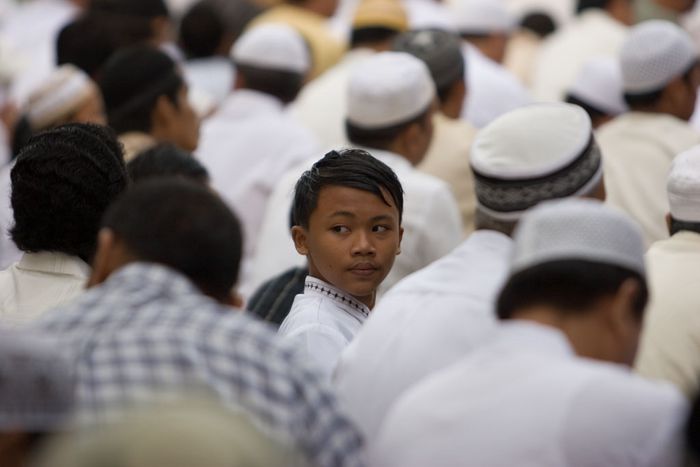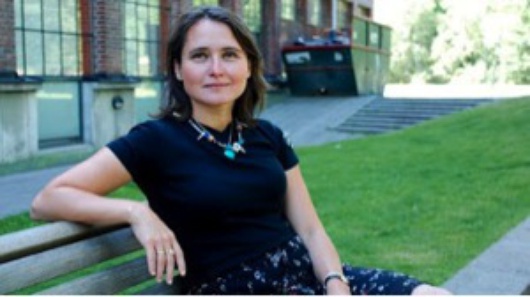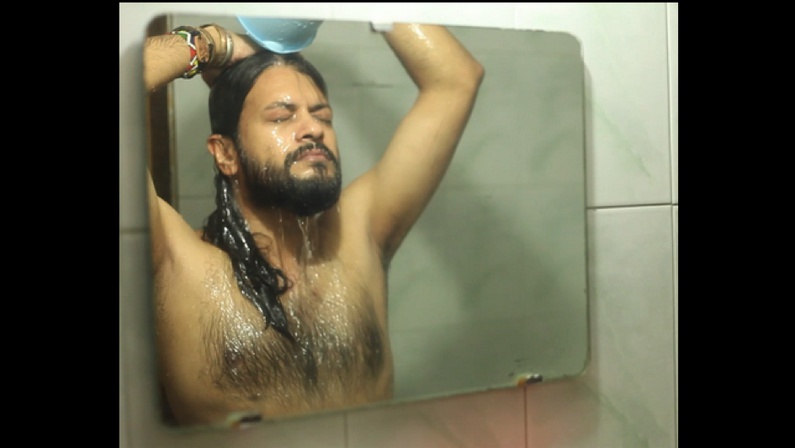
Manislam: Is an Ungendered Islam Possible?
Published on
(Opinion) In Manislam, Turkish-Norweigian director Nefise Özkal Lorentzen takes a deeper look into what it means to be a man and a Muslim. An interesting take on a delicate question of our time.
In Islamic countries, often women and homosexuals have limited freedom and added hardship in life. Men tend to limit the freedom of others and make them ‘suffer’. A possible reason is that in such countries the patriarchal system is widespread; unlike girls, boys are thought to be strong, dominant, decision makers and beloved – just because they are men.
Well, are the men of Islamic countries really happy? How do they carry that burden, how do they cover everything they are expected to be? What are the bases taken into consideration in the interpretations of the holy book? What is the real problem: the book or the interpretations? Nefise Özkal Lorentzen seeks answers to those questions in the last film episode of her Islam Trilogy.
 In her first film, Gender Me (2008), we met men who want to to be both homosexsual and Muslim. In the second episode, A Baloon for Allah (2011), she narrated why women in Islam are unhappy. In the final episode Manislam (2014), the leading roles belong to men in Islam. The music of the documentary was composed by the wellknown Turkish Sufi flute player Mercan Dede; the film is sponsored by the Norwegian National Broadcasting TV (NRK). It is the result of a three year effort. In Manislam, Özkal Lorentzen introduces to us four Muslim men from Indonesia, Kuwait, Bangladesh and Turkey, who see the necessity of a new understanding of Islam in the world, who see life in a different way than their fellow believers and who dare to ask questions.
In her first film, Gender Me (2008), we met men who want to to be both homosexsual and Muslim. In the second episode, A Baloon for Allah (2011), she narrated why women in Islam are unhappy. In the final episode Manislam (2014), the leading roles belong to men in Islam. The music of the documentary was composed by the wellknown Turkish Sufi flute player Mercan Dede; the film is sponsored by the Norwegian National Broadcasting TV (NRK). It is the result of a three year effort. In Manislam, Özkal Lorentzen introduces to us four Muslim men from Indonesia, Kuwait, Bangladesh and Turkey, who see the necessity of a new understanding of Islam in the world, who see life in a different way than their fellow believers and who dare to ask questions.
This documentary is a brief story of how they see Islam, what conflicts they face while they attempt to change the dominant culture in their countries and how they disseminate their messages. According to the film director, these four men who try to shape a democratic and united Islam, moving toward their own freedom. Nefise Özkal Lorentzen's documentaries are slightly different then others, as it is enriched by animation and fairytale narration. What is also special about her is that she takes part in the movies as a mother and woman, all while being the director.
Men behind the masks
 In Manislam, Özkal Lorentzen makes us sympathise and feel with the men in their pain, rather than barely informing or illuminating the issues. The protagonists share their very intimate memories, other times they confess to Özkal Lorentzen's camera. İhsan Eliaçik is well known by Gezi Riot supporters in Turkey. He leads an activist group in Turkey called Anti-Capitalist Muslims. He is an important figure for the director, being from the same culture; he gives her hope to get real Islam back from the fundamentalists in Turkey. Eliaçik is a Muslim theologian and thinks that religion should be anchored in daily life and focus on injustices such as hunger or enviromental issues. According to him, the problems are not really rooted in Islam but wrong interpretations and the dominant patriarchal system impose the passion for power and possession on men.
In Manislam, Özkal Lorentzen makes us sympathise and feel with the men in their pain, rather than barely informing or illuminating the issues. The protagonists share their very intimate memories, other times they confess to Özkal Lorentzen's camera. İhsan Eliaçik is well known by Gezi Riot supporters in Turkey. He leads an activist group in Turkey called Anti-Capitalist Muslims. He is an important figure for the director, being from the same culture; he gives her hope to get real Islam back from the fundamentalists in Turkey. Eliaçik is a Muslim theologian and thinks that religion should be anchored in daily life and focus on injustices such as hunger or enviromental issues. According to him, the problems are not really rooted in Islam but wrong interpretations and the dominant patriarchal system impose the passion for power and possession on men.
Bangledeshi Imtiaz Pavel created a quiz board game which he plays with the village kids to make them understand that men and women are equal from an early age. In the Muslim villages Pavel visited, girls play football in shorts, while boys cheer for them. Naif Al-Mutawa is psychologist from Kuwait and the creator of the 99, the first superhero cartoon characters in the Islamic world. His stories depict the adventures of 99 superheros, each with one of the 99 names of Allah. He believes in the power of narration and noticed that there was no superhero in the Islamic world, unlike Superman or Batman in the Christian world.
Syaldi Sehude and four other young men put on miniskirts and walked in the streets of Jakarta chanting slogans against rape. This small event had a nationwide effect and became a headline in the Jakarta Post. They believe that in order to emancipate women, first men should be freed. They should be allowed to be emotional and cry like women do.
Time for an Islamic Revolution?
Besides pointing out men's pain, Nefise Özkal Lorentzen's film also unveils an important fact of today's world that should be considered: people from Muslim countries are judged according to their dominant religion, but not on their individual personalities or talents. The bad reputation of Islam leads to prejudices and discrimination. Christianity experienced the Renaissance in the 16th century and this reform of the religion resulted in a new era in history. Islam has not yet had a reform. Al-Mutawa, Eliaçık, Pavel and Sehude could be considered as pioneers of an Islamic Reform. Manislam shows us that contributions to that reform are needed rather quickly. The Islam Triology of Lorentzen should be shown in every country to help people to realise that Islam, as we experience it today, is not the real version. Furthermore, stereotyping Muslims will not solve any of the problem in the world, as the Islamic reform needs to be undertaken by real Muslims.



